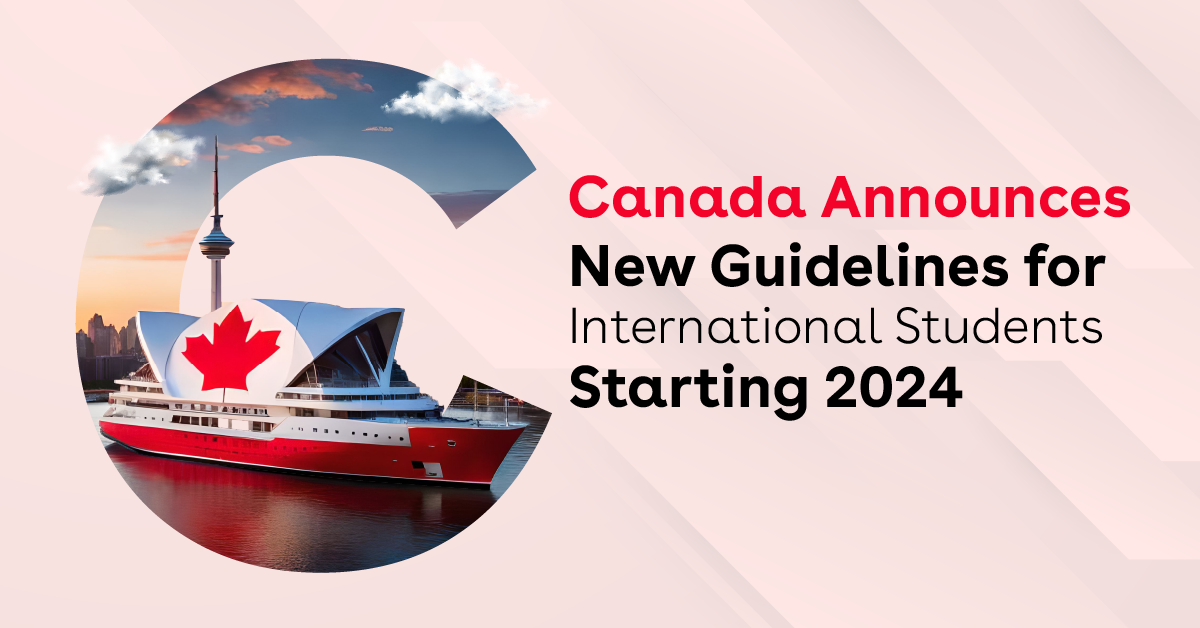The Honourable Marc Miller, Minister of Immigration, Refugees and Citizenship, announced these changes will affect from January 1, 2024. The Government implemented a Cap on study permits, proof of finances has been increased, and changes in postgraduate work permits. This article aims to provide insights into the latest updates, ensuring that you are well informed about the changes affecting international students in Canada.
This Blog Includes:
All New Rules for International Students to Study in Canada in 2024
As an aspiring student, you must be aware of the changes:
1) Temporary Cap on Study Permits
To manage high application volume, Canada has set a temporary cap of 360,000 new study permits for 2024. This meant that the maximum number of Canadian student visas would be limited to 360,000 for the 2024 intake.
2) Cost of living and Proof of Financial Increased
As an international student, you are always required to show proof of finances if you are coming to study in Canada at your own expense.
- The minimum required financial proof of support has increased from $10,000 to $20,635 for all provinces except Quebec, effective January 1, 2024.
- For Quebec, the minimum is now $15,078 (except for students under 18, who require $7,541).
If you are looking for scholarships to study in Canada then please check out the BS MS PhD Scholarships in Canada in 2024.
3) Changes to Post-Graduation Work Permit (PGWP)
- Master’s degree graduates will now be eligible for a 3-year PGWP, effective September 1, 2024.
- Graduates of master’s degree programs, even if less than two years in duration, also qualify for a 3-year PGWP.
- Students enrolled in programs under curriculum licensing agreements will no longer be eligible for PGWP after graduation, starting September 1, 2024.
4) Part-Time Working Hours Limit Extended
The temporary 20-hour work limit exemption during studies has been extended until April 30, 2024.
5) Spouses of Open Work Permit International Students
Spouses of international students with a study permit cannot directly apply for an open work permit anymore. They need to apply for a closed work permit tied to their spouse’s employer.
Important Resources:
Ways to Move to Canada
Visit Visa: The easiest way is to apply for the Tourist Visa. Go to Canada, explore the market, and find a Job there. If you are successful in finding a Job you can convert your visit visa into a work permit.
Study Visa: One way to move to Canada is to apply for admission into a Canadian University and get a study visa.
Work Permit: Another possible way is to apply for the Job, get an offer letter from the Canadian employer, and apply for the Work permit.
No Job? Dont worry. The government of Canada has launched a Digital Nomad program to attract remote workers from all around the world.
